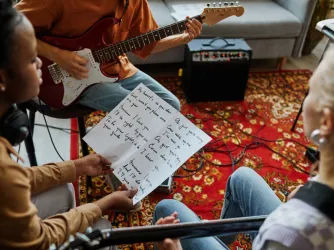Table of Contents
Speaking Out After the Presidential Election? We’ve Got a Few Tips

At FIRE, our job is to ensure that students and faculty members are able to speak their minds on campus.
After Donald Trump emerged as the winner of Tuesday’s presidential election, Americans from coast to coast have shared their opinions on the outcome, voicing everything from congratulations to the president-elect, condemnation of him, to sentiments falling somewhere in between.
Post-election demonstrations on college campuses have been widely reported. For instance, students at American University (AU) in Washington, D.C. protested Trump’s impending presidency by burning the American flag—a form of symbolic expression that, while historically controversial, is nonetheless protected by the First Amendment. (Notably, although AU is private, it promises its students the right to freedom of expression.)
While core political speech is constitutionally protected on public campuses and promised on most private ones, students still frequently face uncertainty when speaking about controversial topics. For that reason, we want to remind everyone about FIRE’s FAQ for Student Protests on Campus, in which we answer some of the most frequently asked questions about student activism. Our tips help students learn their rights on their individual campuses, know what to do in the event of censorship attempts, and more.
If you’ve got questions about demonstrating at your college or university, we’ve got the answers here:
And if you’d like to learn more about getting involved in promoting free speech on your campus, join our FIRE Student Network and check out its tips for student activists.
Recent Articles
Get the latest free speech news and analysis from FIRE.

Why FIRE is suing Secretary of State Rubio — and what our critics get wrong about noncitizens’ rights


LAWSUIT: FIRE challenges unconstitutional provisions Rubio uses in crusade to deport legal immigrants over protected speech
